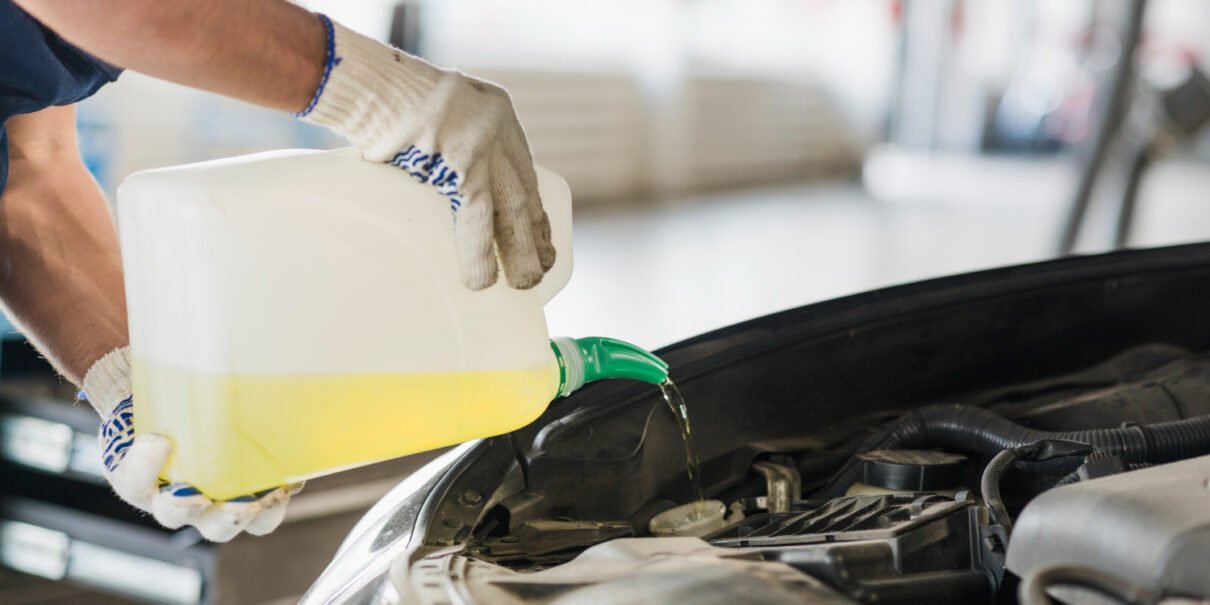Understanding how antifreeze works and how it interacts with water is crucial for keeping your car’s engine healthy. With extreme temperatures posing risks in both winter and summer, using the right coolant mixture is key. In this article, we’ll look at the mechanics of antifreeze, why water is involved, and best practices for safe mixing.
What Is Antifreeze and Why Mix It with Water?
Antifreeze, also called coolant, is a chemical solution (usually ethylene glycol or propylene glycol) designed to regulate engine temperature. It prevents freezing in cold weather, boiling over in hot weather, and protects against corrosion inside the cooling system.
Mixing antifreeze with water is standard practice. Water acts as a heat conductor, helping the antifreeze distribute heat throughout the engine efficiently. Most vehicle manufacturers recommend a 50:50 mix — 50% antifreeze, 50% water — though ratios can vary depending on climate.
For example:
- A 50:50 mix protects against freezing down to about −37°C and boiling up to 129°C (with a closed system).
- In colder regions, a 60:40 mix (more antifreeze) may be advised for extra freeze protection.
- Distilled water is preferred to tap water to avoid mineral deposits or scaling inside the radiator.
How Does Mixing Antifreeze and Water Work?
The ratio of antifreeze to water directly affects engine protection and performance. Key factors include:
- Freeze protection: Antifreeze lowers the freezing point of the liquid, keeping the engine safe in sub-zero temperatures.
- Boil-over prevention: Water helps transfer heat away from the engine; antifreeze raises the boiling point to prevent overheating.
- Corrosion protection: Most antifreeze contains additives that prevent rust and corrosion in the radiator, water pump, and engine passages.
- Thermal conductivity: Too much antifreeze can reduce heat transfer efficiency, causing higher operating temperatures.
Because of these factors, an incorrect mix (too little water or too much antifreeze) can lead to overheating, engine damage, or insufficient freeze protection.
Is It Safe to Mix Different Brands or Types?
Mixing antifreeze from different brands or chemical bases (e.g., IAT, OAT, HOAT) is generally not recommended. While water can always be safely added, incompatible antifreeze types may neutralize corrosion inhibitors or form sludge, reducing protection. Always check your vehicle manual for the recommended coolant type.
Best Practices for Mixing Antifreeze with Water
Here are practical tips for maintaining the right coolant mixture:
- Use distilled water instead of tap water.
- Stick to the manufacturer-recommended ratio (usually 50:50).
- Never mix incompatible antifreeze types.
- Check the coolant level regularly and top up if needed.
- Flush the system every 2–5 years to remove old coolant and deposits.
Why Correct Antifreeze Mixtures Matter to Car Owners
Coolant mixture isn’t just about preventing your car from freezing:
- Engine longevity: Correct mixtures prevent rust, scaling, and overheating.
- Fuel efficiency: Proper engine temperature helps maintain optimal performance.
- Peace of mind: Avoid expensive repairs caused by freeze or boil-over damage.
Conclusion: Safe Mixing for a Healthy Engine
Yes, you can mix antifreeze with water, but the key is the right ratio, proper type, and using clean water. A well-maintained coolant system protects your engine, reduces wear, and ensures reliable performance year-round.
Looking for top-quality antifreeze and cooling system parts? Explore trusted products at car-parts.co.za to keep your engine running smoothly.


Leave a Reply